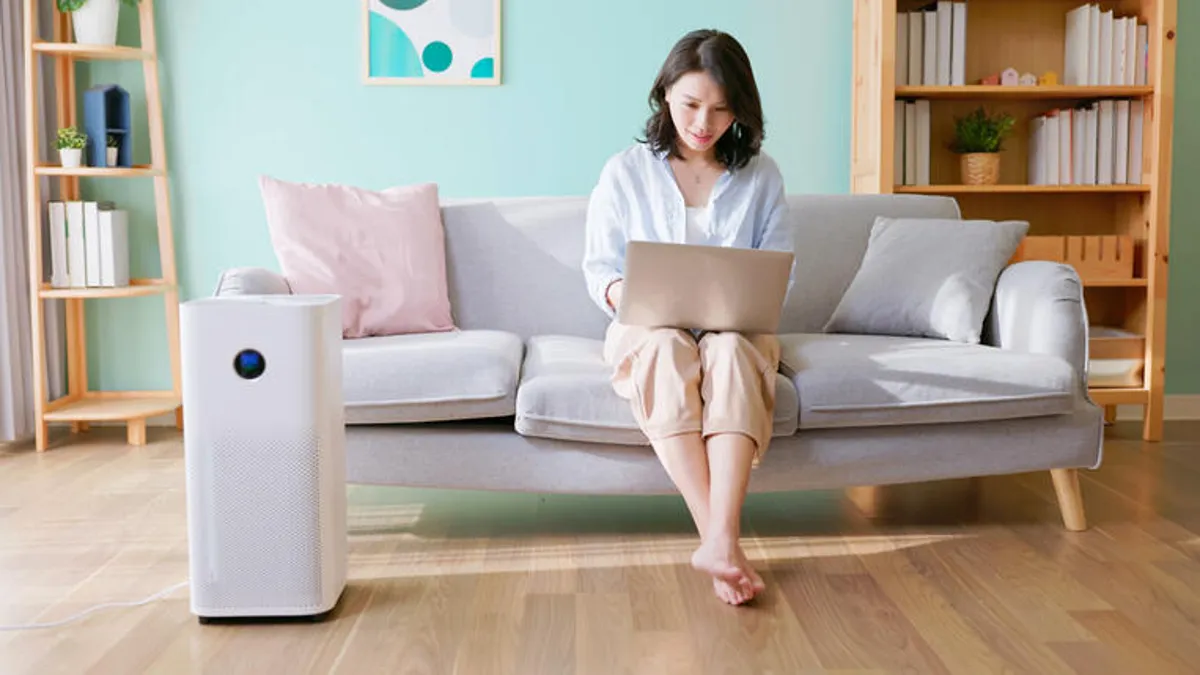In today’s world, we often worry about what we eat and drink—but what about the air we breathe? It might surprise you, but indoor air can sometimes be more polluted than outdoor air. From dust and pet dander to chemicals and smoke, the air in your home may be filled with harmful particles. That’s why many families are turning to a simple solution—an air purifier.
Let’s break down why getting an air purifier might just be one of the smartest health decisions you make for your family.
What Is an Air Purifier?
An air purifier is a device that cleans the air by removing harmful particles such as dust, smoke, pollen, and even bacteria. It pulls in dirty air, filters it, and releases clean, fresh air back into the room. Some advanced models can also remove bad odours and harmful gases.
Why Indoor Air Can Be More Dangerous Than You Think
You might think that staying indoors protects you from pollution, but that’s not always the case. Many common household items release invisible chemicals into the air. Things like cleaning products, paints, and air fresheners may smell nice, but they can carry dangerous toxins.
Also, everyday activities like cooking or lighting candles add particles to the air. Without proper ventilation or an air purifier, these harmful substances hang around and get into your lungs.
Top Benefits of Using an Air Purifier
1. Helps People with Allergies
If you or your children suffer from allergies, an air purifier can be a lifesaver. It removes common allergens like pollen, dust mites, and pet hair, making it easier to breathe and sleep.
2. Reduces Asthma Triggers
Asthma attacks are often caused by airborne particles. An air purifier clears the air of these irritants, helping reduce the risk of sudden breathing problems.
3. Fights Bacteria and Viruses
Some air purifiers come with HEPA and UV filters that can trap bacteria and kill viruses. While it’s not a replacement for medical care, it adds an extra layer of protection—especially during flu season.
4. Removes Harmful Chemicals
We use many chemical products in our homes without realising how bad they are for our health. An air purifier can reduce these toxins, keeping your indoor air much cleaner and safer.
5. Better Sleep Quality
Breathing in clean air helps you sleep more peacefully. If you’ve been waking up tired or congested, poor air quality might be the reason. A good air purifier can make a huge difference.
Protecting Children and Elderly Family Members
Young children and older adults are more sensitive to pollution. Their lungs are either still developing or not as strong as they once were. That means clean air is even more important for them. An air purifier provides a safer environment where they can breathe easier and stay healthier.
How Air Purifiers Help with Pet Owners
Pets are wonderful, but they can also bring allergens into your home—like fur, dander, and even bacteria. An air purifier helps reduce these problems, so both you and your furry friends can enjoy your home together without sneezing or itching.
Can Air Purifiers Help with Cooking Smells and Smoke?
Yes, they can! Cooking smells, especially from frying or strong spices, can stay in the air for hours. Smoke from cigarettes or nearby wildfires is even worse. A good air purifier helps get rid of these unwanted odours and harmful particles quickly.
What to Look for When Buying an Air Purifier
HEPA Filters
These are some of the best filters out there. They can trap 99.97% of tiny particles, including dust, pollen, and pet dander.
Activated Carbon Filters
Great for removing smells, smoke, and harmful gases.
Room Size
Make sure the purifier is strong enough for the size of your room. A small device won’t clean a large living room properly.
Noise Level
If you plan to use it in the bedroom, check how loud it is. Some models are very quiet and perfect for night use.
Where Should You Place Your Air Purifier?
To get the best results, put your air purifier in the rooms where your family spends the most time. Common spots include the living room, bedrooms, or even the kitchen. Keep it away from walls and furniture so air can flow freely around it.
How Often Should You Use It?
For best results, use your air purifier every day. Some people let it run 24/7, especially if someone in the home has allergies or asthma. Just make sure to clean or replace the filter as instructed.
Do Air Purifiers Use a Lot of Electricity?
Not really. Most modern purifiers are designed to be energy-efficient. If you choose a good-quality brand, it won’t make a big difference in your electric bill.
Is It Worth the Money?
Think of it this way—what price would you put on your family’s health? An air purifier is a one-time investment that gives you long-term benefits. You’ll breathe cleaner air, sleep better, and stay healthier overall.
Final Thoughts
An air purifier might not be the flashiest thing to buy for your home, but it could be one of the most important. With all the health risks floating around in the air—both inside and outside—it makes sense to take control of your indoor environment.
Whether it’s helping a child with asthma, protecting your ageing parents, or just giving your family a healthier home, an air purifier is a smart and caring choice.

































